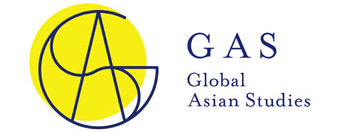Between Increasing Research Activities and Constrained Credit Course Offerings (2)
Professor Shigeto Sonoda (Institute for Advanced Studies on Asia and Graduate School of Interdisciplinary Information Studies, The University of Tokyo)
Now, the solutions. They are first, creating an event package by planning and adjusting in advance of all different kinds of events, scheduling them in a specific time slot, and combining them with seminars and workshops scheduled ad hoc; second, making efforts to bring the information of these events to students so that they understand these events are tied with credited courses and understand how credits are to be earned by attending these events.
The largest difficulty, as can be easily imagined, is to schedule all types of events in a specific time slot. We may by chance catch foreign scholars visiting Japan but whether we can invite them to our event package is depended on the negotiation. Some scholars simply don’t want to give a speech during their stay in Japan.
On the other hand, ample funding is necessary for setting up the omnibus form of GJS events. If we have enough funds to cover transportation, accommodation and honorarium, we can organize seminars and workshops in a fixed time slot. Even in this case, however, we have to pay negotiation cost. If there is no staff to negotiate with the foreign researchers, it is difficult to create the package.
The Global Japan Studies Research Network does not have enough budgets to conduct over ten omnibus events. But since there is staff responsible for negotiations in the Institute for Advanced Studies on Asia (IASA), they can collect information and create the package. The remaining task is to adjust and coordinate with departments responsible for GJS Educational Program to transform the package into credit courses. This is a difficult task at the University of Tokyo because IASA as a research institute is not qualified to offer credit courses.
Eventually, there are a variety of difficulties. Fortunately, however, our proposal of turning GJS events into credit courses was discussed and approved at the meeting of GJS Education Program Committee within Division of International Affairs. The next step is then to how to create the credit-granting event package.
I had an opportunity to visit University of California, Berkeley, between Nov.11-15 where I found similar issue discussed in this essay. At Berkeley there is the Center for Japanese Studies which is hosting a lot of activities, while there are Japanese studies related events that are organized by the faculties not affiliated with the Center. I was told that the Center’s activities are not coordinated with the department and it is difficult to mobilize undergraduate students to participate in the activities that the Center has been coordinating.
Be that as it may, if scholars can obtain research funds and travel between Japan and overseas, the possibilities of joint research and joint education emerge. When opportunities of publicizing research results increase, it is possible to integrate them and show them to students as a part of research activities of Japanese Studies, which will eventually lead to the increase of students’ interest in Japanese Studies at the University of Tokyo. Then we don’t need to worry about the problem of “involution.”
Rome was not built in a day. I think there is no alternative but to keep on our humble work to construct researchers’ solid network so that we can overcome the “contradictions” between increasing research activities and constrained credit course offerings. This is where we stand today.



